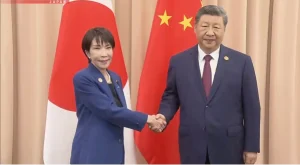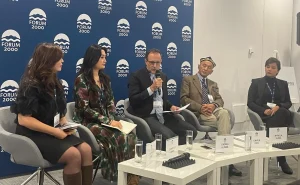The G7 leaders called for a joint effort against the repressive practices of authoritarian states abroad. Recently, China’s involvement in these practices has been frequently highlighted.
The leaders of the G7, gathered in Ottawa, issued a joint statement on June 17, 2025, expressing deep concern over the growing threat of transnational repression (TNR)—a form of cross-border harassment and intimidation frequently carried out by authoritarian states against dissidents, human rights activists, journalists, and diaspora communities living abroad.
While the statement does not name specific countries, many of the practices listed—such as forced repatriation, digital harassment, surveillance, and threats against family members—closely mirror documented actions by the Chinese government against Uyghur activists, Hong Kongers, Tibetans, and dissidents living overseas.
China’s Tactics Mirror G7 Concerns
The G7 defines transnational repression as a serious form of foreign interference that undermines national sovereignty, individual safety, and international law. Examples cited include physical threats, misuse of international legal tools like extradition or Interpol alerts, cyber harassment, and coercion of relatives in home countries.
These tactics have been widely reported in cases involving China, which has used passport confiscation, denial of consular services, and pressure on foreign governments to forcibly return Uyghur activists. Moreover, Beijing has been accused of leveraging spyware and digital surveillance to target exiled dissidents and run smear campaigns against them—especially against women.
In many cases, family members of Uyghur activists abroad have been detained or disappeared in East Turkistan (Xinjiang) as a form of retaliation or to coerce silence. These acts are in direct alignment with the G7’s outlined concerns.
Joint Action Plan to Combat Repression
In response, G7 leaders pledged to strengthen their collective response to TNR by:
- Promoting global awareness of transnational repression and its impact on human rights and democracy;
- Launching a Resilience and Response Framework to share best practices and enhance policy, diplomatic, and technical responses;
- Creating a Digital TNR Detection Academy under the G7 Rapid Response Mechanism to build capacity to detect and counter online repression;
- Supporting civil society organizations and individuals who are targeted, including through the Canada-UK Common Good Cyber Fund.
The statement follows a multistakeholder dialogue held in Ottawa in February 2025, where recommendations were developed to better protect vulnerable communities.
Message to Beijing?
Although not directly named, the statement’s timing and language send a clear signal to the Chinese government, whose actions against diaspora communities have long been criticized by human rights organizations. With this joint move, G7 nations are not only recognizing the threat of transnational repression but are also taking coordinated steps to hold perpetrators accountable.
As repression beyond borders becomes a growing concern in democratic societies, the G7’s commitment marks a significant step toward defending exiled communities—particularly Uyghurs, Tibetans, and other Chinese diaspora groups—from cross-border authoritarian influence.









Be First to Comment